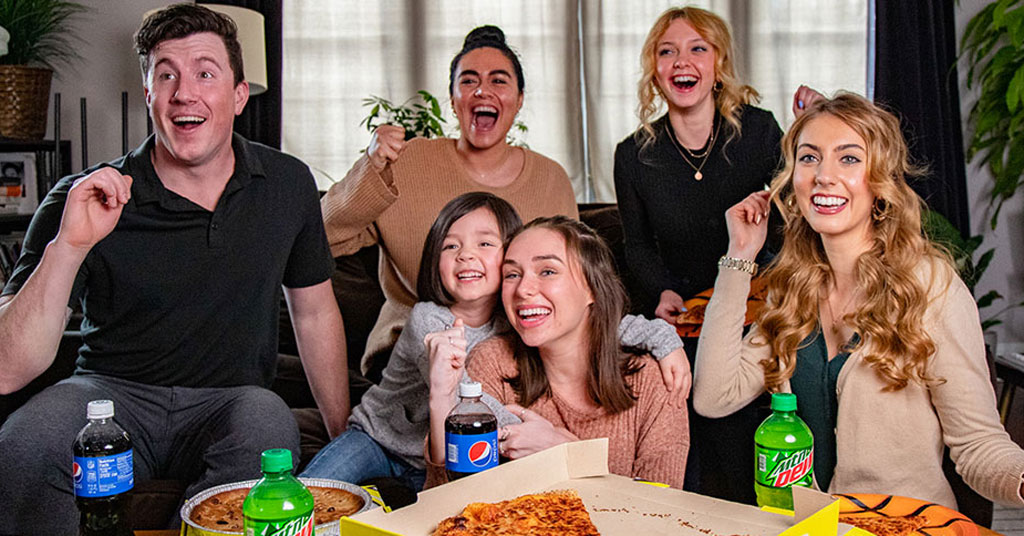How to become a hometown business

When your franchise achieves hometown status, you’ve accomplished something that will serve your community, employees, and business for years to come.
Michigan-based David Plait, a Hungry Howie’s multi-unit operator, learned the value of creating authentic community ties decades ago. Now, 50% of his marketing budget goes toward setting up resale events with churches, schools, and other organizations.
“A lot of businesses don’t realize that they have a responsibility to give back to their community,” Plait says. “When you do that, you’re doing something good. You’re also exposing your brand.”
Plait isn’t against writing a check to sponsor an ad in a yearbook but prefers to give his food to groups or sell it on their behalf, letting them pocket the proceeds.
In the modern world of digital marketing, Plait still relies on old-fashioned guerrilla marketing with an updated twist. Sampling is about getting pizza directly into someone’s hands, so they can take a bite, savor it, and, ideally, go online to brag about the meal. Sometimes, a free pizza is the best thing that’s happened to that person all day.
“There’s so much bad news in the media,” Plait says. “You want to give them a reason to say something good online.”
Decades ago, Plait bought a struggling business. It was located in the back of a Dunkin’ and faced an alleyway. With no frontage, he dropped literature in mailboxes, participated in the Boy Scouts parade, and made appearances at arts festivals.
But he didn’t really start making traction until a local businessman invited him to attend a meeting of Rotary International, a service organization that describes itself as “people of action.” He was surrounded by different community leaders, who were happy to welcome a new member willing to add his efforts to theirs. They raised money to eradicate polio and elevate the United Way. They also supported each other’s businesses.
“I started to volunteer,” he says, “and I realized how good it felt to make a difference.”
Now, he encourages his team to get involved in the community wherever and whenever they can. While it can be difficult to reach an employee when they’re needed to take an extra shift, Plait says “they stumble over each other” to provide pizza to benefit a band, drama club, church youth group, or sports team.
“When it starts becoming personal, everyone wins,” Plait says.
By raising money for worthy causes while giving people the opportunity to sample the product, employees working the event can become more connected to their community. In the process, they develop a sense of ownership.
That’s important because sampling can have bad results if the staff isn’t 100% committed to making sure the product and brand image are topnotch.
“If you don’t have a good team that’s excited to do it, it could backfire,” he says.
Plait says it’s about getting his staff members “out of their comfort zones, away from their screens, and out in the community where they can do some good.”
The community, the employees, and the business all benefit in authentic ways that go well beyond writing a check. In short, the way to become a hometown business is to be a hometown business.
“This is fun. This is life,” Plait says. “This is about making a real difference.”
Share this Feature
Recommended Reading:
| ADVERTISE | SPONSORED CONTENT |
FRANCHISE TOPICS
- Multi-Unit Franchising
- Get Started in Franchising
- Franchise Growth
- Franchise Operations
- Open New Units
- Franchise Leadership
- Franchise Marketing
- Technology
- Franchise Law
- Franchise Awards
- Franchise Rankings
- Franchise Trends
- Franchise Development
- Featured Franchise Stories
| ADVERTISE | SPONSORED CONTENT |

$500,000





 The multi-unit franchise opportunities listed above are not related to or endorsed by Multi-Unit Franchisee or Franchise Update Media Group. We are not engaged in, supporting, or endorsing any specific franchise, business opportunity, company or individual. No statement in this site is to be construed as a recommendation. We encourage prospective franchise buyers to perform extensive due diligence when considering a franchise opportunity.
The multi-unit franchise opportunities listed above are not related to or endorsed by Multi-Unit Franchisee or Franchise Update Media Group. We are not engaged in, supporting, or endorsing any specific franchise, business opportunity, company or individual. No statement in this site is to be construed as a recommendation. We encourage prospective franchise buyers to perform extensive due diligence when considering a franchise opportunity.